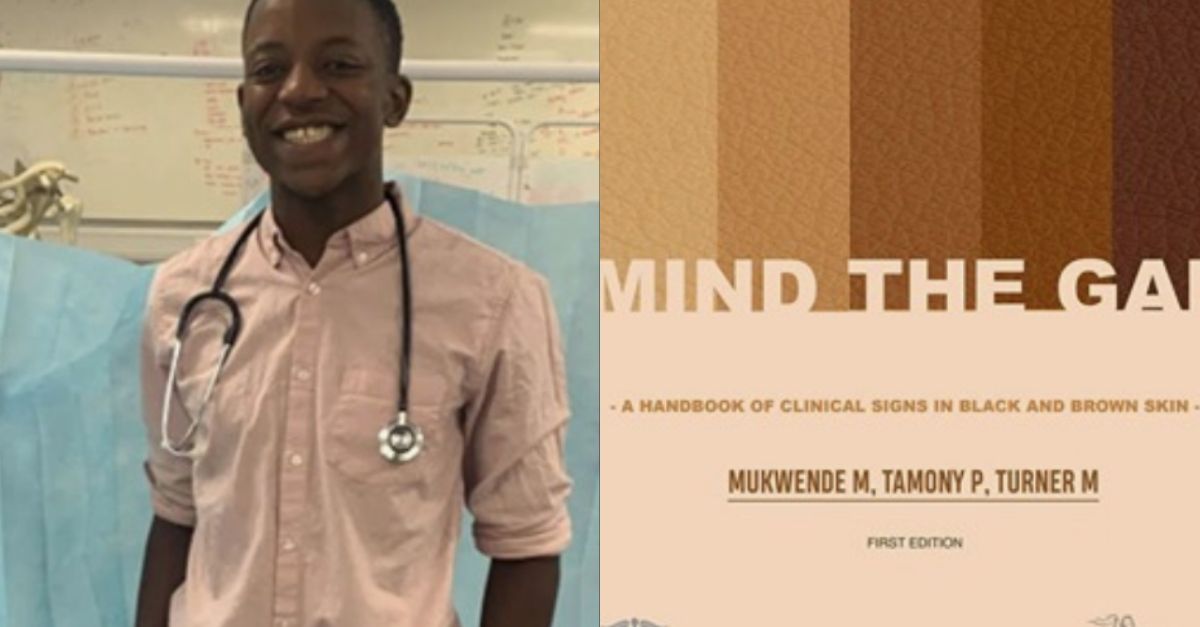2020 has been quite a year with the world not being prepared for the coronavirus pandemic and the death of George Floyd sparking more conversations around racism and police brutality. However, this medical student has bridged a gap between the two societal issues by creating an important handbook that will not only improve the medical field but help unify people of all races.
Videos by Rare
Malone Mukwende is a Black medical student in his second year of medical school at St. George’s University of London, and he’s taking medical education to the next level. The second-year medical student wrote a guide that helps healthcare workers understand how conditions will show up on darker skin called Mind the Gap. The handbook was written after petitions for better inclusivity in the medical field started to surface in response to George Floyd’s death.
The book features side-by-side images of how conditions show such differences on white skin compared to black and brown skin. The petition, calling for better BAME (black and minority ethnic) representation in the medical school course material, used Kawasaki disease as an example to show why this has been a problem.
You see, the red splotchy rash is a useful descriptor of the disease on white skin while on darker skin, you can barely tell there’s even a condition at all. Petitioners explained that this delay in identifying Kawasaki disease can be fatal. The second-year student also explained to the British Medical Journal, “white normativity is teaching students to identify risks and conditions in white people that can be missed in people of colour.” Mukwende continued to explain,
On arrival at medical school, I noticed a lack of teaching about darker skin. We were often taught to look for symptoms, such as rashes, in a way that I knew wouldn’t appear on my own skin. The booklet addresses many issues that have been further exacerbated during the COVID-19 pandemic, such as families being asked if potential COVID patients are ‘pale’ or if their lips ‘turned blue.’ These are not useful descriptors for a Black patient and, as a result, their care is compromised from the first point of contact. It is essential we begin to educate others so they are aware of such differences and the power of the clinical language we currently use.
This is absolutely amazing. In light of everything that has happened this year, it’s hard to not feel hopeless. However, we can commend our heroes for being brave in stepping up: the health professionals and health care providers, the ones unafraid to use their brains and voices to make a better world. Thank you Malone Mukwende for igniting an amazing fire for change.



